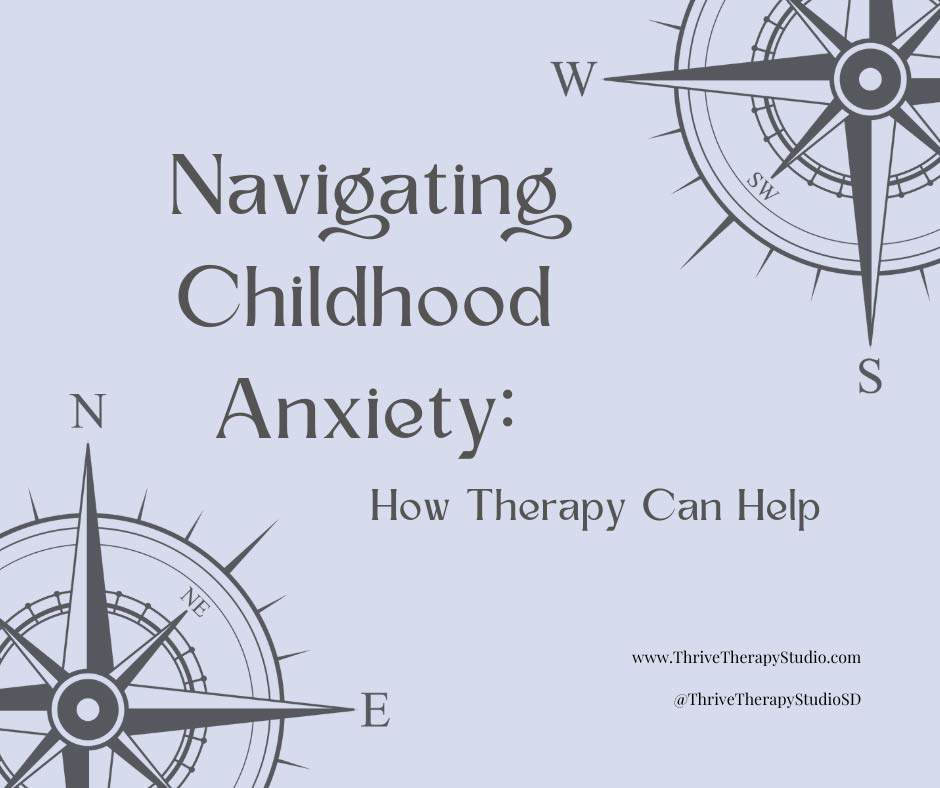1. A Safe Space to Express Emotions
Individual therapy provides a safe and confidential space for children to express their thoughts and feelings openly. Children might find it challenging to articulate their anxieties to parents or teachers, fearing judgment or misunderstanding. A therapist creates an environment where children can share their concerns without fear of consequences. At our office, we like to do so by utilizing a lot of play and art in our therapy with children. You see, children learn best when you speak their language, which is often not talking about problems but playing or expressing them in other ways.
2. Specialized Guidance
Therapists who work with children are trained to understand the unique developmental needs and challenges of young minds. They use age-appropriate techniques and tools to help children cope with anxiety. Therapists can connect with children through play, art, or talk therapy and help them navigate their feelings. All of the therapists at Thrive specialize in child and teen therapy as well as supporting families and parents.
3. Skill Development
Anxiety can be complex, and individual therapy equips children with the skills to manage it effectively. Therapists teach strategies for identifying triggers, challenging irrational thoughts, and developing coping mechanisms. These skills empower children to tackle anxiety both in the short term and as they grow older. Often, children experiencing anxiety are eager to feel better and will readily engage in learning skills. At times, that can be challenging due to the desire to avoid facing their fears; in those situations, progress can be slow. However, it is always better to have your child attend therapy if possible!
4. Building Resilience
Resilience is a crucial life skill; therapy can help children build it. Through therapy, children learn to face their fears, tolerate discomfort, and gradually develop the confidence to confront challenges independently. This newfound confidence can increase self-esteem, a stronger sense of self, and distress tolerance skills. You see, anxiety management and distress tolerance are closely related as we often need to learn to tolerate the initial distress and discomfort when facing a fear or anxiety-provoking situation. Doing so can be tricky, but it is a great skill for future challenges!
5. Parental Guidance and Support
Individual therapy isn’t just for the child; it can also provide parents valuable insights and guidance. Therapists often involve parents in the process, helping them understand their child’s perspective and offering strategies to support their child effectively at home. At our office, we all enjoy involving parents so that everyone can make more progress through treatment!
Parenting an anxious child can be incredibly challenging. Knowing when to accommodate their fears and needs and when to challenge them is hard. Often, parents of children with anxiety may also have their own experience of anxiety too. This stress makes it even more complicated, as you can imagine! Luckily, we at Thrive are here to help you figure out these challenging issues and parenting decisions! Contact us today to discuss how we can help your child and your family today.
Reach out to start
your healing journey


